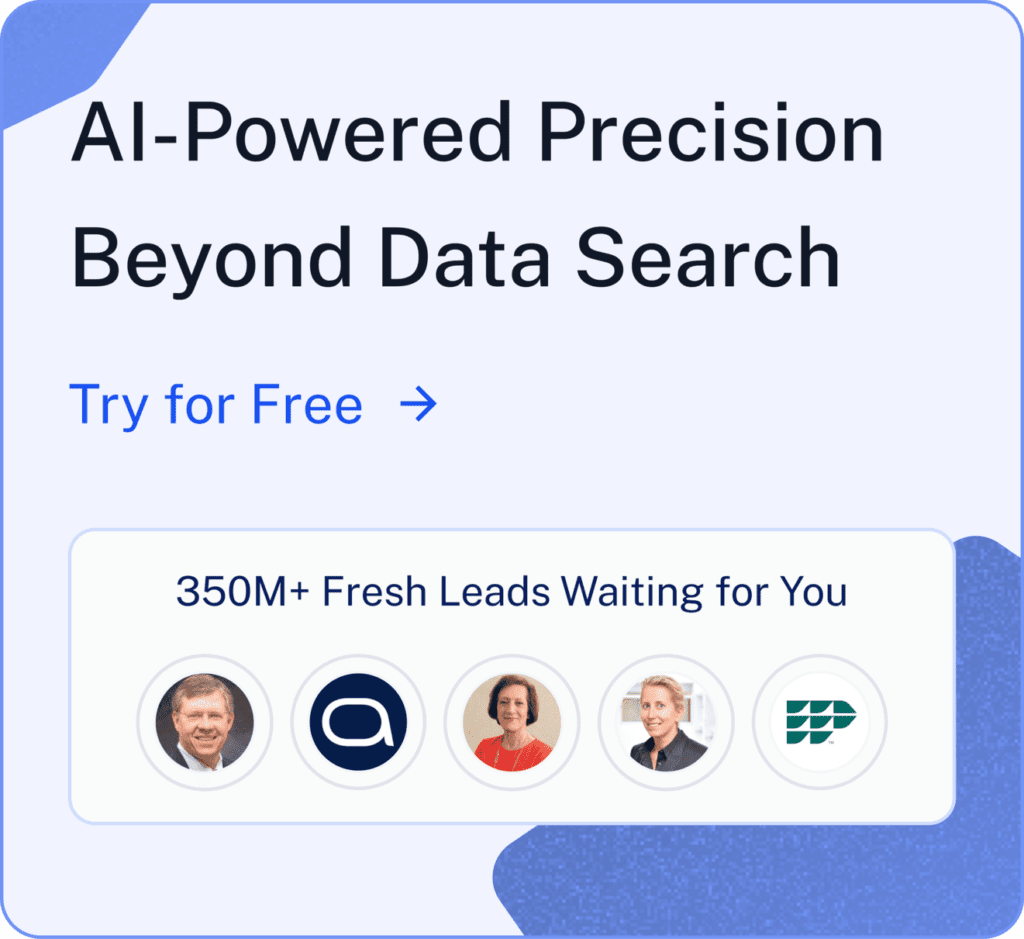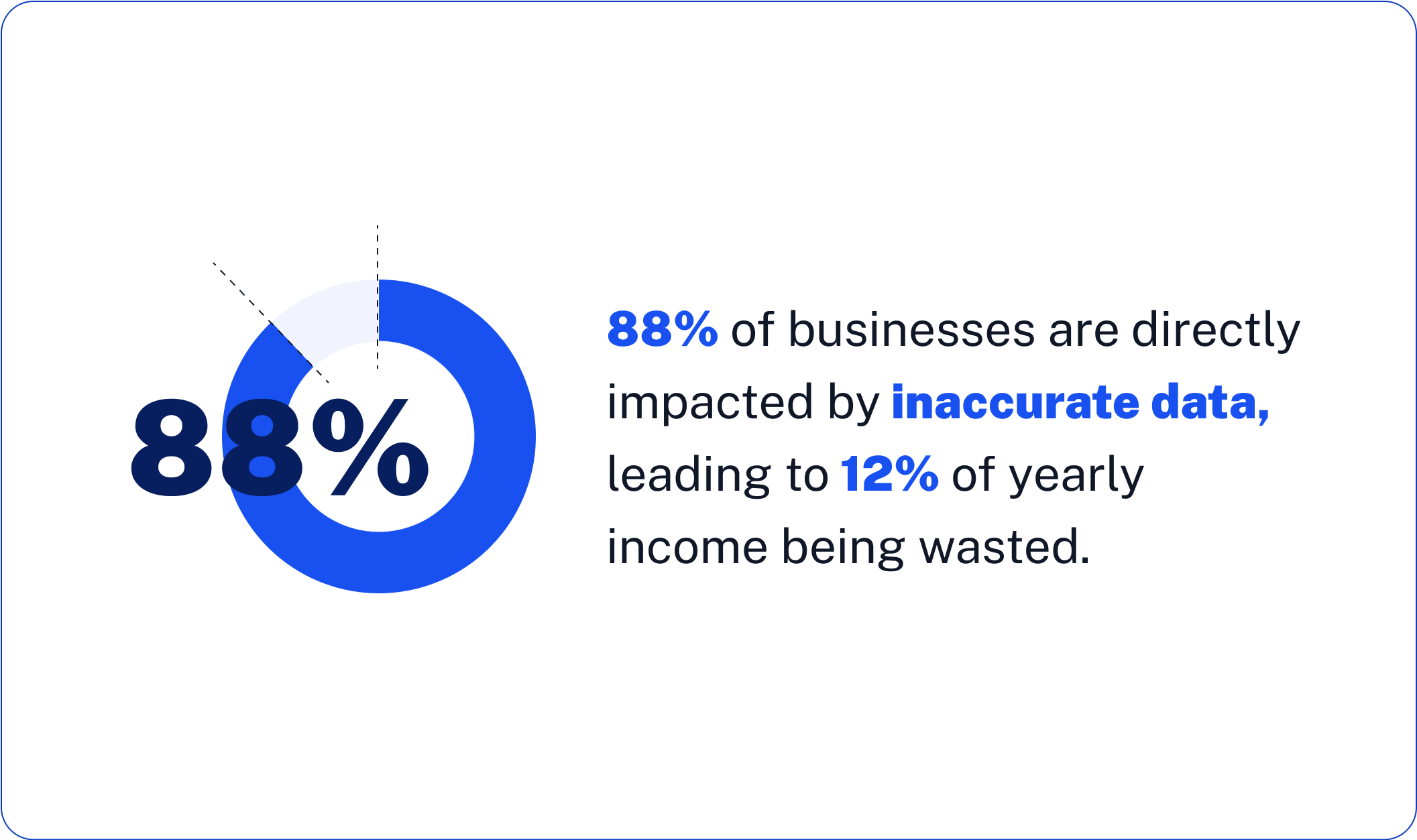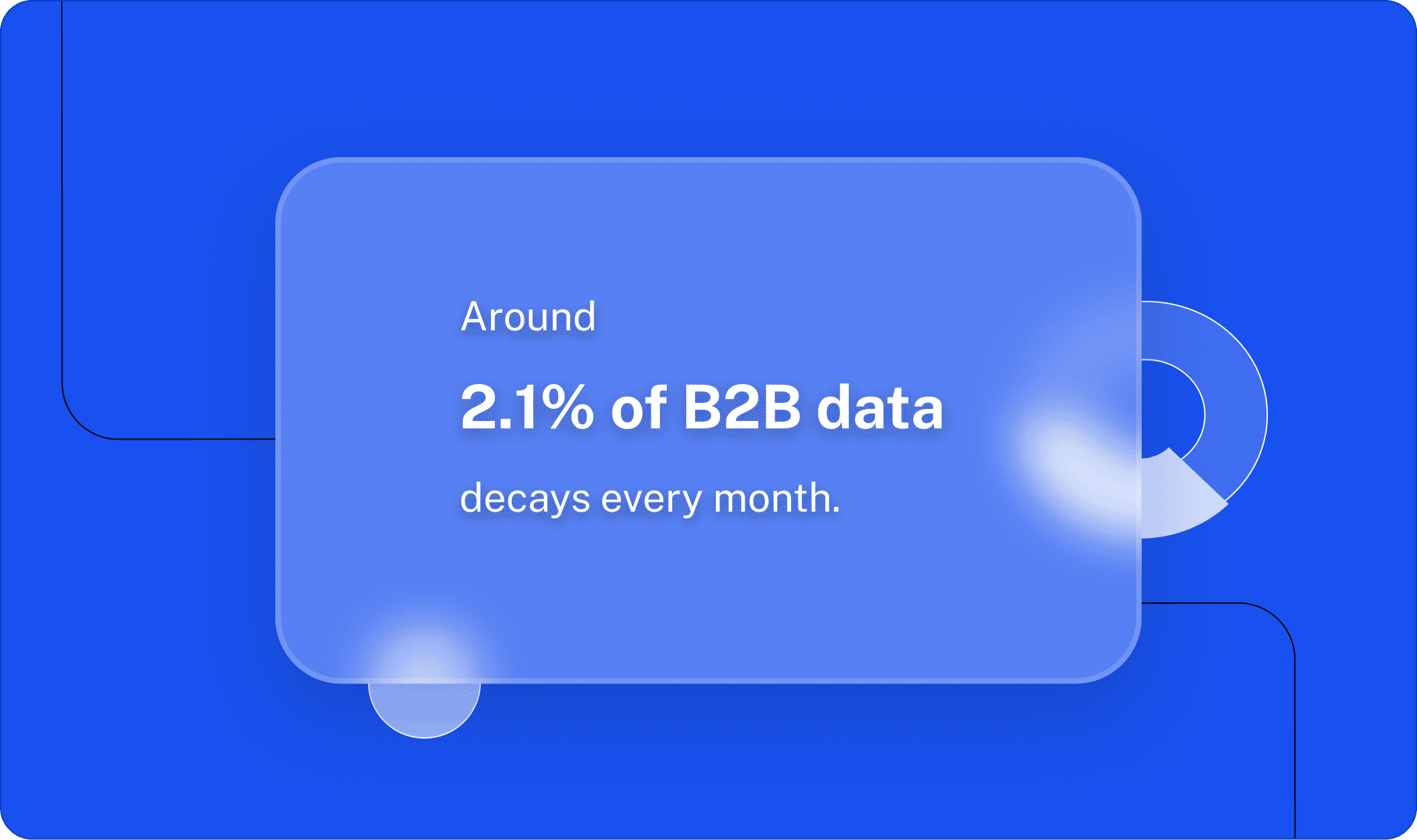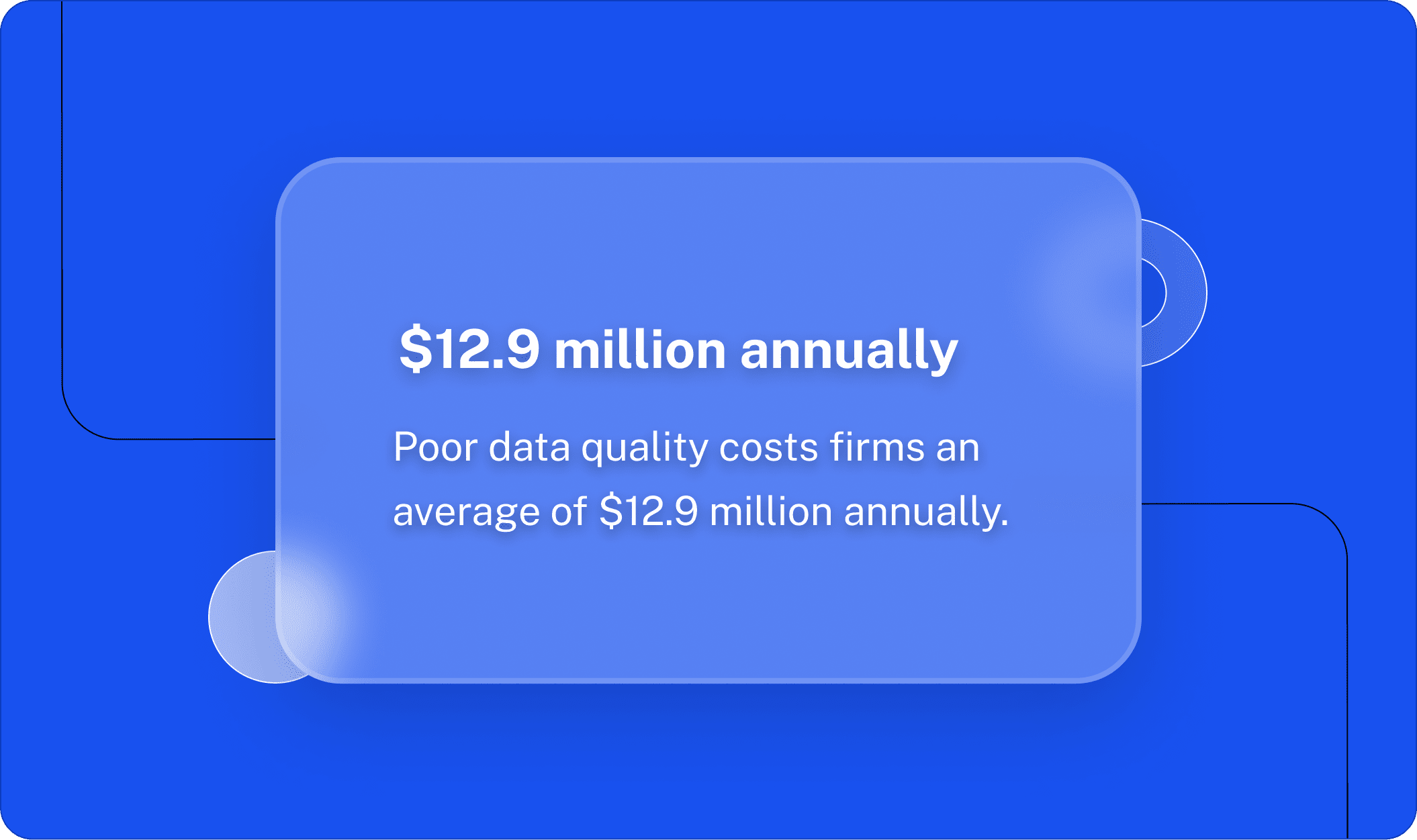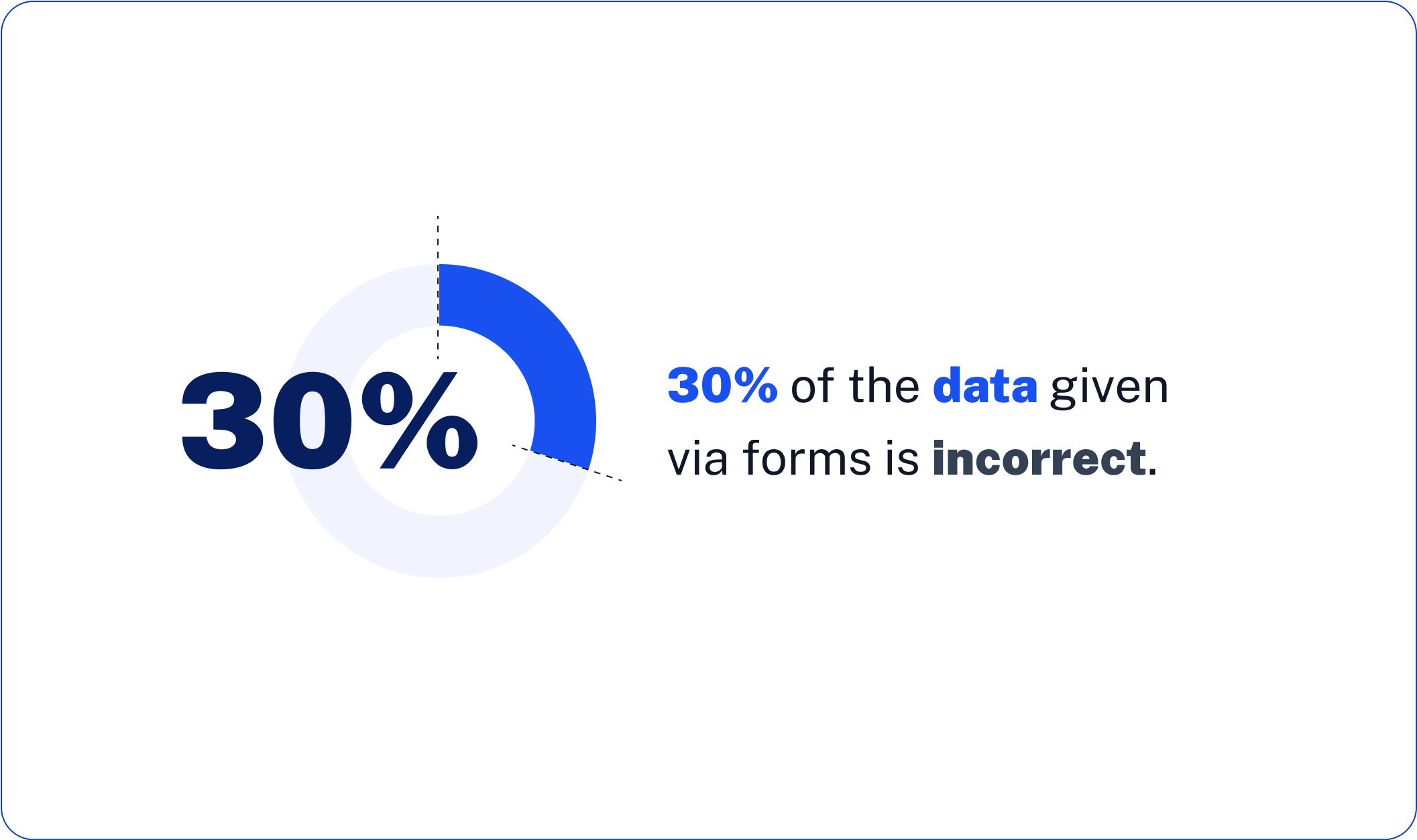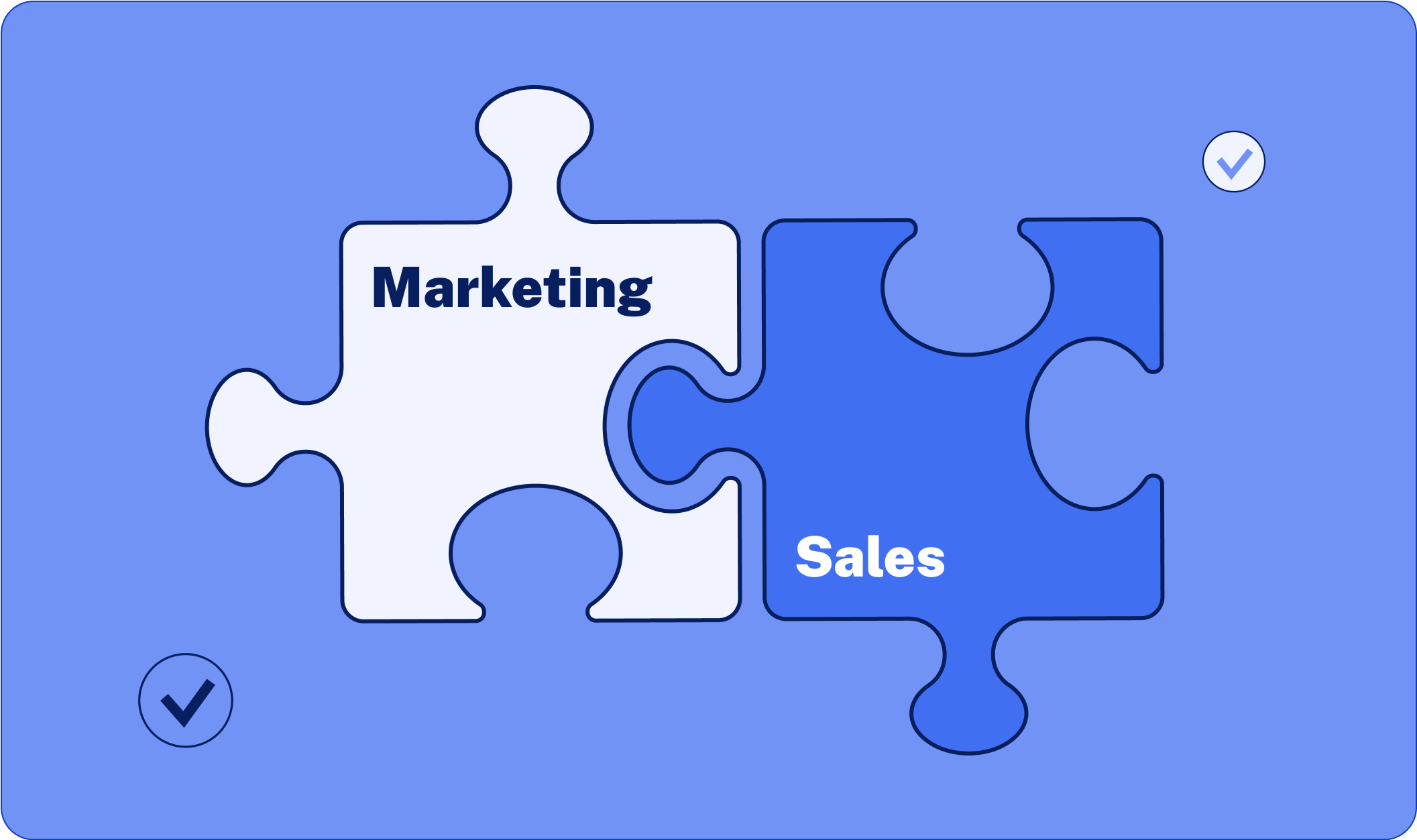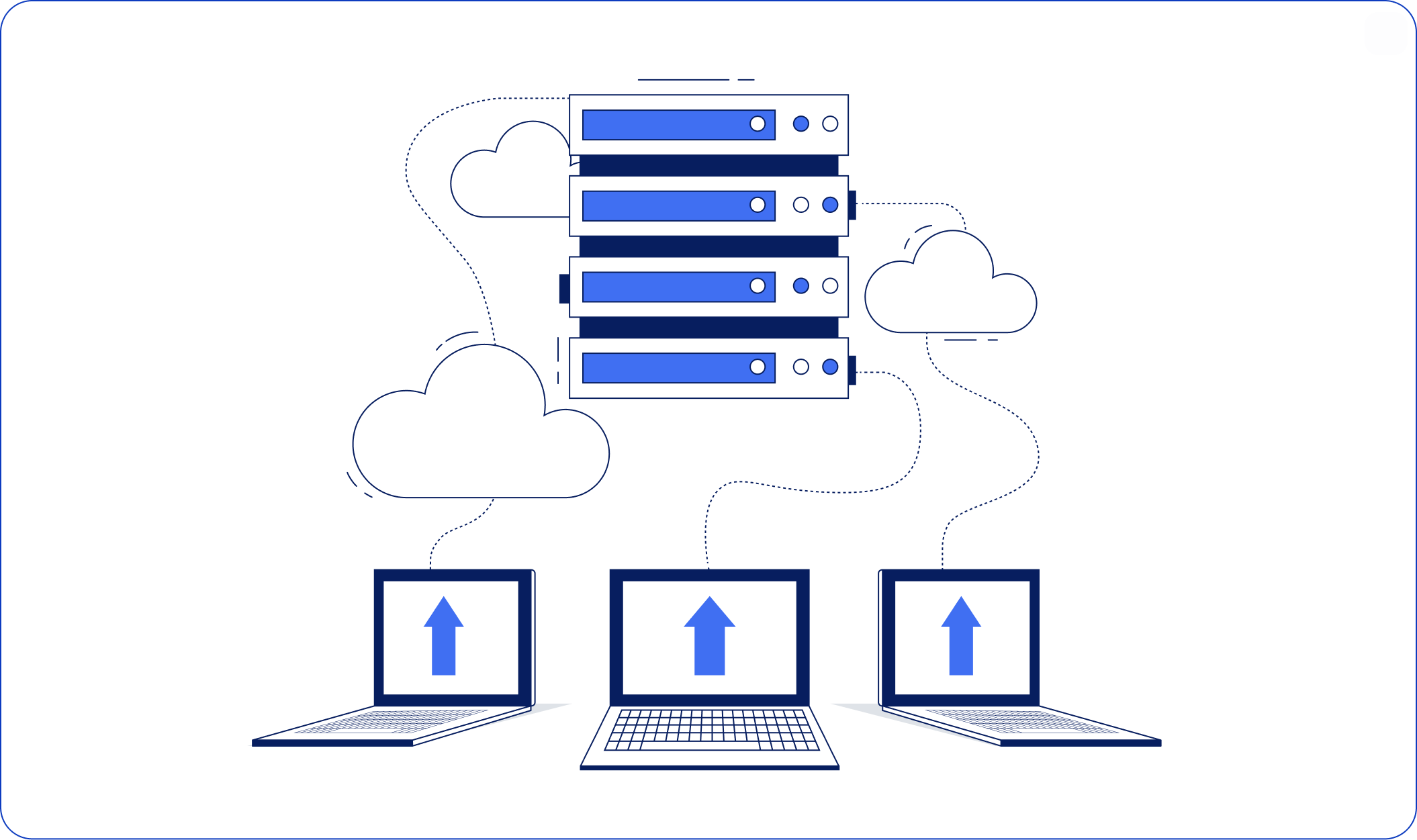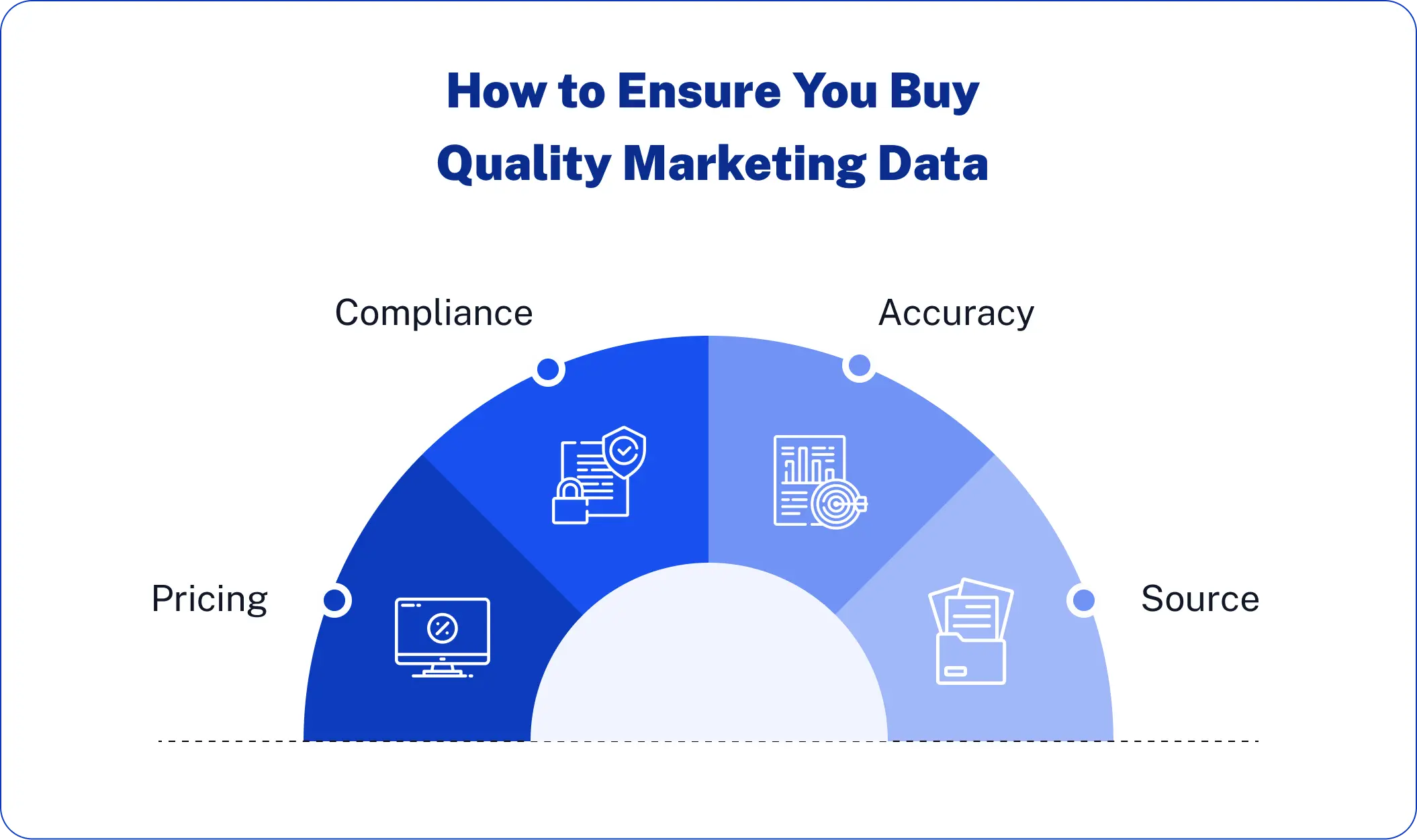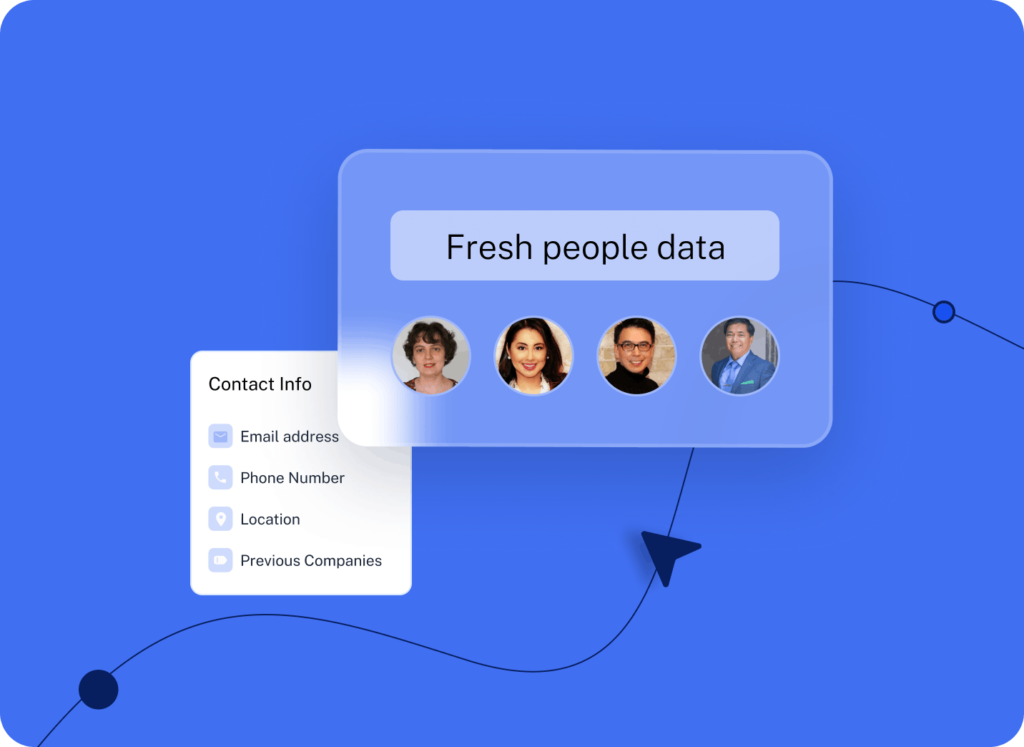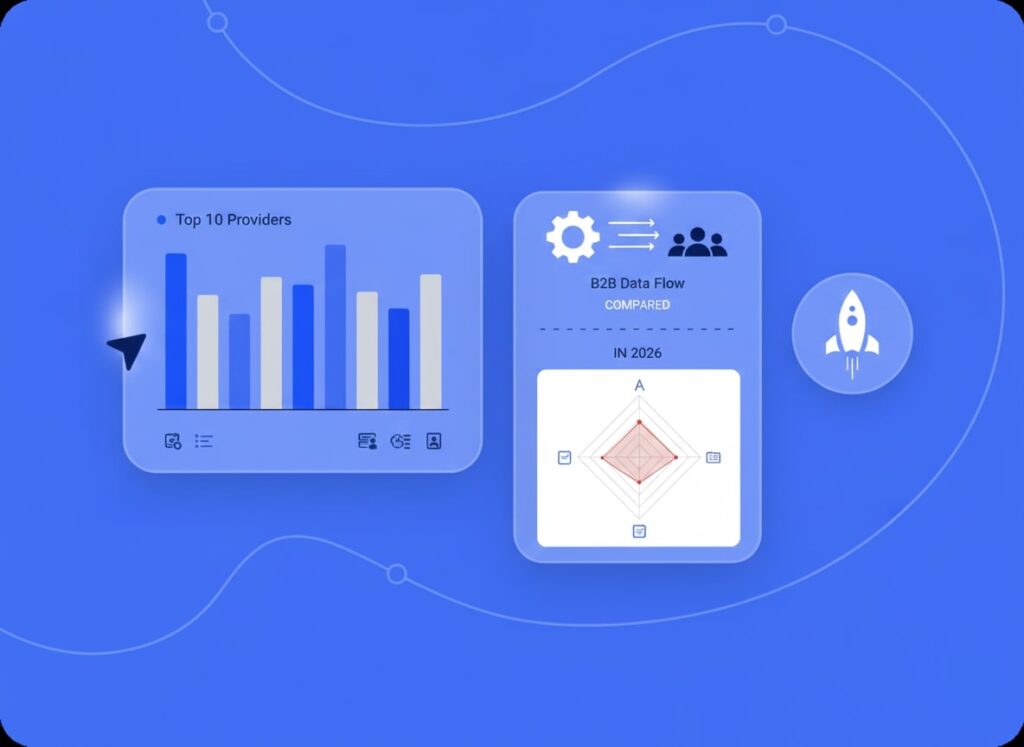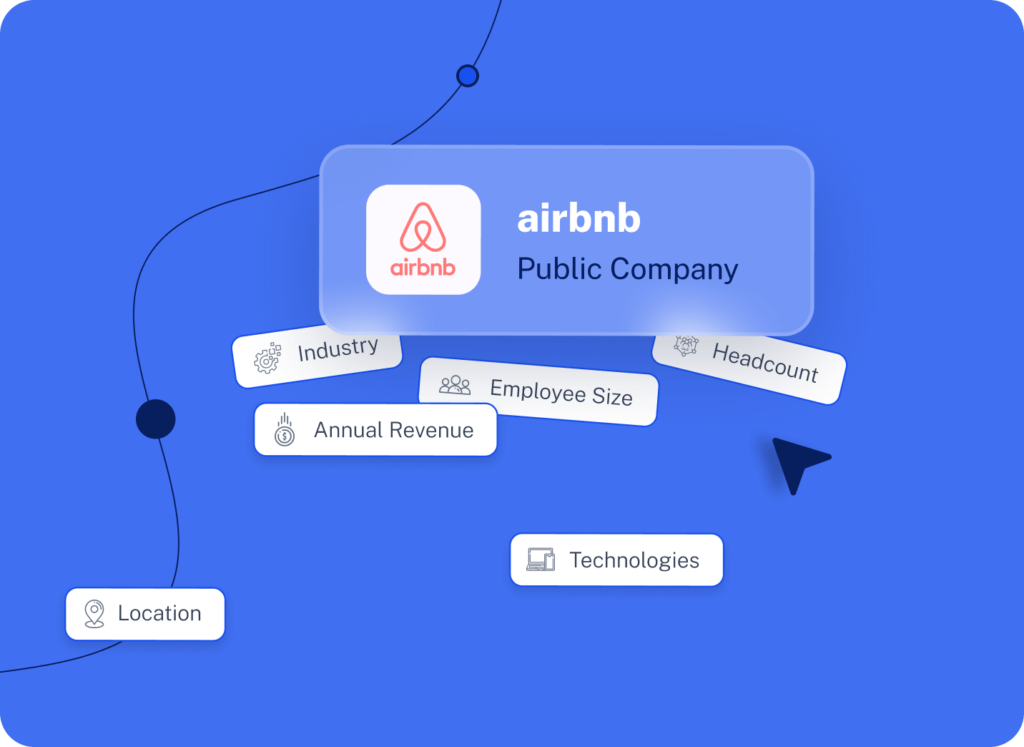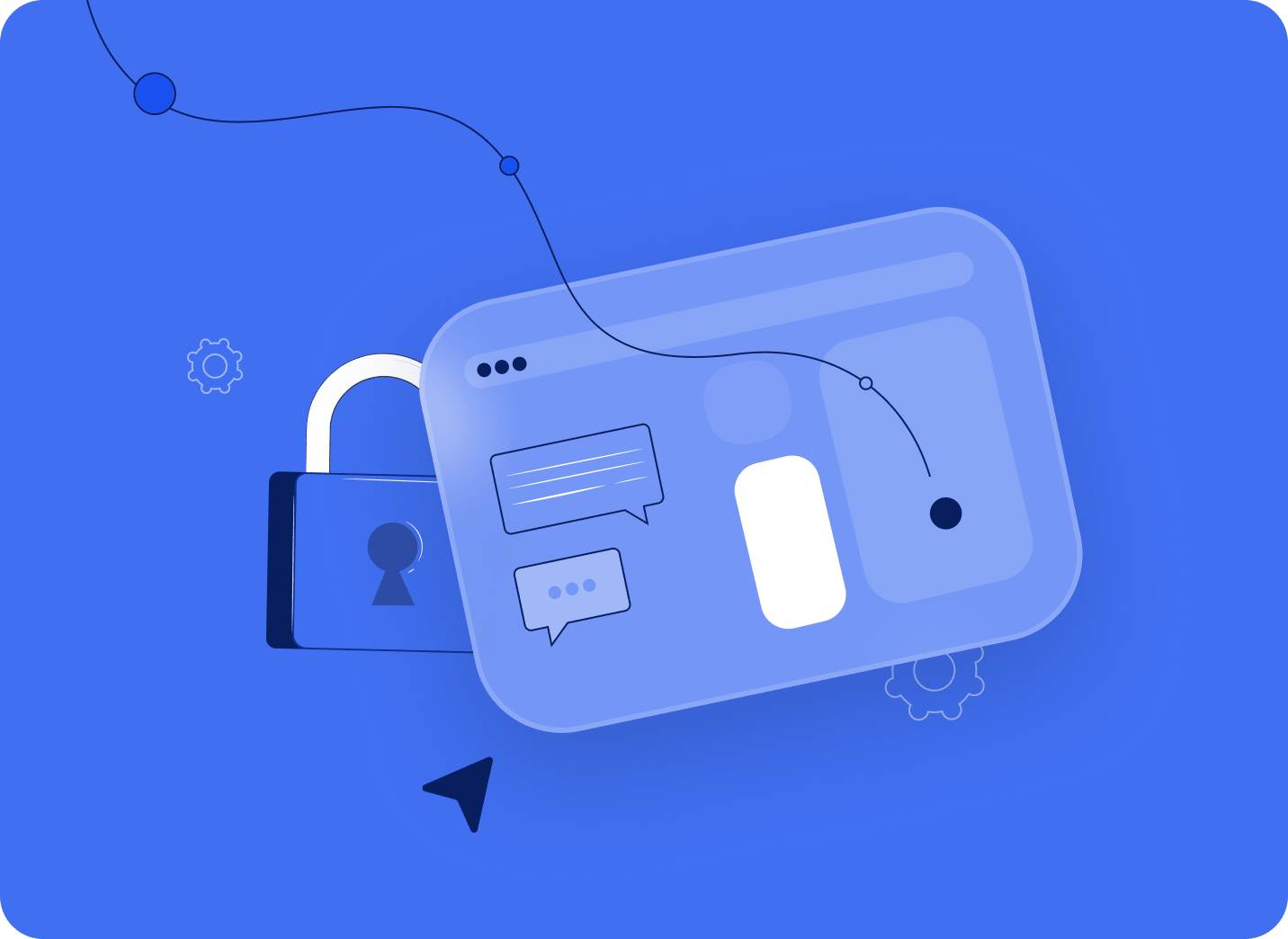Are you looking to empower your business with data?
Or maybe you want to understand your target audience better?
Then B2B marketing data is for you!
But where do you begin?
By reading this article.
This guide will explore B2B marketing data and explain what to look for when purchasing and utilizing data for your marketing efforts.
What is B2B Marketing Data?
B2B marketing data refers to business-to-business data that contains contact information. On the other hand, B2C marketing data refers to business-to-consumer data. It is quite similar but should not be mistaken for B2B marketing data.
An example of a field in B2B marketing data includes the contact information of potential customers. This data provides an excellent opportunity to expand your audience. If you can invest in B2B marketing data, do it. It could help your company go to the next stage.
It is also important to note that several factors must be considered before purchasing marketing data. Therefore, you must understand your company’s needs and how to make sound purchasing decisions.
How To Build Your B2B Marketing Data
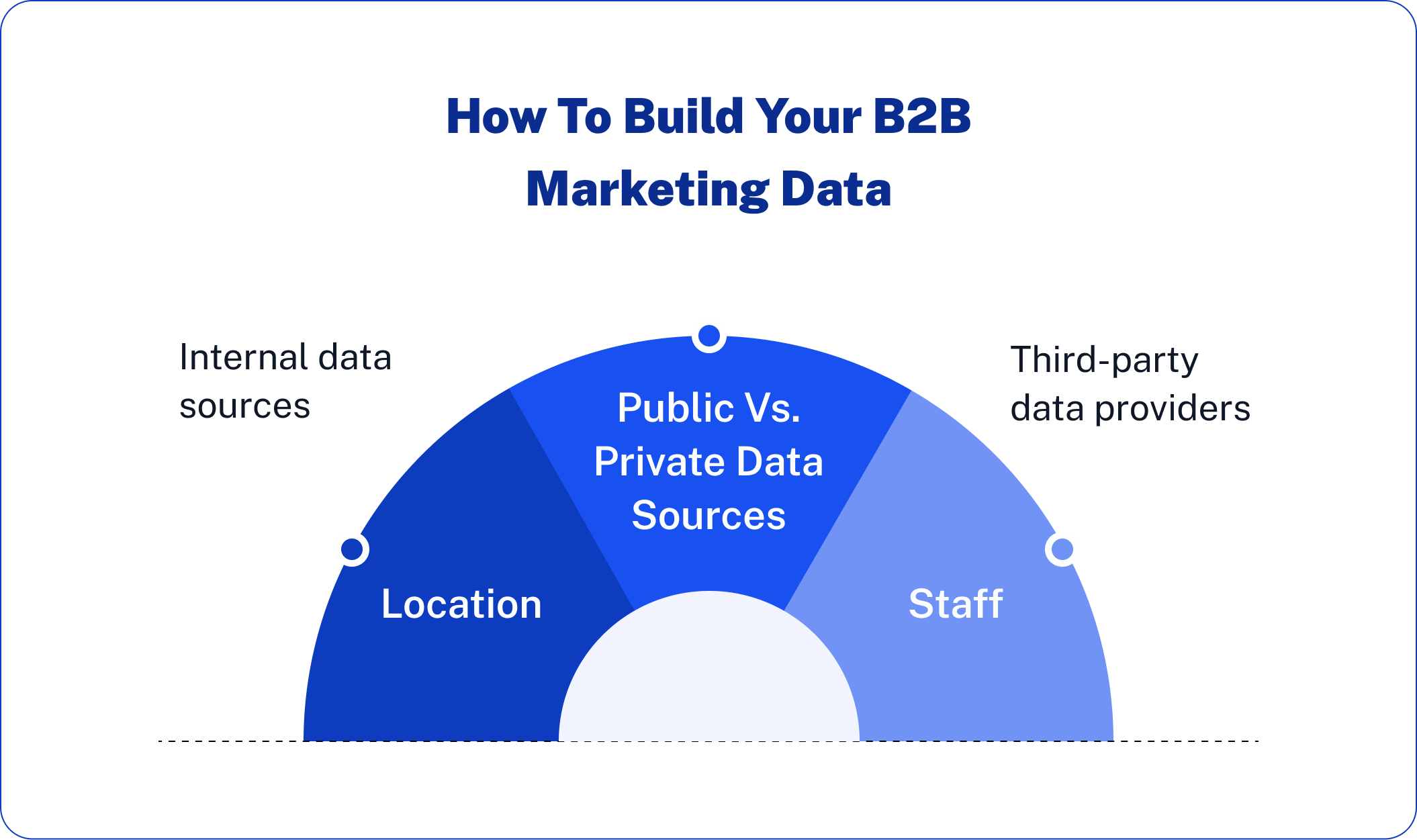
You might find it amusing, but marketing data comes from you! All of us online contribute to these datasets. However, your information cannot be collected or shared for B2C data lists without your permission.
Public Vs. Private Data Sources
This is one method of data collection. Public sources include websites, news stories, and public social profiles. Private data sources include financial and market intelligence, paywall websites, and DaaS providers.
Private data sources differ in that they can only be accessed with permission or payment. Essentially, private sources are unavailable to the public, whereas public sources are. Anyone can access and view public data sources without permission or payment.
Location
Once enough data has been collected, it can be sorted into data lists. Data can be acquired through the Internet, which means it can come from any firm (or consumer) worldwide. As a result, data listings are frequently separated geographically.
For example, if a brand wants to reach a specific consumer, they must include that audience on their list. You’ll need the correct data if you’re looking for information on rural enterprises.
Once the data’s locations are sorted, a B2B data list can become significantly more profitable. There are different techniques to order data lists. It might be depending on location and other factors.
Staff
B2B data lists can include a personnel breakdown. This can be valuable because it provides you with the names and contact information of persons in positions of power. You’ll need the decision-makers contact information to sell them something.
Who is in charge of making purchases on behalf of the business? Relevant business data will be collected into a single B2B data collection so that the business purchasing it will find it useful.
Why Businesses Need B2B Marketing Data
B2B marketing data is part of a growing sector, and those looking to grow their audience turn to it for help. Companies employ B2B marketing data because it is fast, cheap, and simple. In essence, this type of marketing can be far easier than traditional techniques.
Print advertising, referrals, and networking are all effective strategies to sell a brand. However, it can be time-consuming and ineffective. It’s disappointing to spend time implementing ineffective marketing strategies. It also takes time away from you that you could devote to other aspects of your company.
B2B marketing data allows you to purchase a pre-set list of names and contacts. This immediately saves time and resources. Depending on your past marketing plan, it could be substantially less expensive.
B2B marketing data is a more efficient marketing tool. Having all of the data you need on hand keeps things orderly. Completing a marketing plan might be difficult and overwhelming, but things become more manageable once everything is in place.
Ultimately, B2B marketing data is effective at growing businesses and making contacts!
Challenges When Dealing With B2B Marketing Data
B2B marketing data has great value, but realizing its full potential is not without challenges. While data collecting is important, the true problem is efficiently managing, evaluating, and translating that data into actionable insights that fuel successful B2B marketing campaigns. Here’s a look at some challenges you might encounter.
Outdated or Inaccurate Information
Did you know that 88% of businesses are directly impacted by inaccurate data, leading to 12% of yearly income being wasted?
Sad, right?
That’s why correct data is important.
Reliable information serves as the foundation for data-driven marketing. Inconsistent data entry across multiple platforms can result in errors and inconsistencies. Misspelled names or out-of-date data can significantly bias your study, limiting your capacity to tailor your efforts or target the appropriate audience segments.
Furthermore, data quality decreases with time. Customers change jobs, businesses merge, and contact information becomes outdated. Without regular data cleansing methods, your analysis may be based on inaccurate information.
Data Overload and Analysis Paralysis
B2B marketers frequently acquire large amounts of data from multiple sources, making it challenging to prioritize the most relevant KPIs for their unique marketing objectives.
Struggling to filter through huge data can result in analysis paralysis, limiting the capacity to extract relevant insights and integrate data into tangible marketing plans.
Furthermore, properly evaluating complicated B2B marketing data frequently necessitates specific skills and data science knowledge. Without the appropriate talent, firms may struggle to unlock the true value of their data.
Difficulty in Extracting Actionable Insights
Even with clear and accessible data, turning it into effective marketing applications is not always easy. Choosing the incorrect metrics for your study can lead to misleading results and impair your ability to analyze campaign effectiveness.
Data analysis entails identifying patterns and links in your data. Without the ability to identify these relationships, converting raw data into practical strategies for lead generation, campaign optimization, and client segmentation is difficult. The ultimate goal is to turn these insights into actionable marketing tactics.
The difficulty is to bridge the gap between data analysis and practical marketing initiatives that produce tangible outcomes.
Why B2B Marketing Data is Crucial for Success
Success in the B2B sector depends on a solid understanding of your target market’s needs and internet behavior. This is where B2B marketing data comes into play. By utilizing data, you can obtain a comprehensive consumer profile.
This allows you to develop highly targeted campaigns that connect with specific audience segments, ultimately increasing engagement, raising conversion rates, and significantly increasing your marketing ROI.
Let’s look at the value of B2B marketing data in today’s business environment:
Enhanced Customer Targeting
Gone are the days of broadcasting marketing messages to an anonymous audience. B2B marketing data enables you to design highly targeted campaigns that appeal to certain consumer categories. Analyzing website behavior, purchase history, and demographic data can help you identify client pain points, interests, and content preferences.
This enables you to modify your message, personalize your approach, and eventually engage with potential clients on a deeper level, leading to higher engagement and conversion rates.
Informed Product Development
Traditionally, product development relied on existing techniques, which did not work well depending on the industry. Thankfully, modern product development has developed a solution for this: data!
Using data to build goods that directly meet the demands and challenges of your target market may increase your chances of success in the market.
Improved Campaign Effectiveness
B2B marketing data helps you monitor metrics like click-through rates, conversion rates, and engagement levels. By examining this data to determine what is and is not working, you can fine-tune your campaigns and change your methods to maximize return on investment (ROI).
Data ensures that your business goals are measurable and your B2B marketing initiatives are effective.
Identification of Market Opportunities and Threats
You can use marketing data to find new market opportunities. Moreover, the data can identify potential threats to your company, allowing you to adjust your marketing plans and reduce risks before they have a negative impact on your market share or profitability.
Access to B2B marketing data allows you to play a more strategic role in the B2B market and make well-informed decisions that ultimately lead to long-term business success.
How To Keep Your B2B Data Up-to-date
High-quality B2B data must be constantly polished to be relevant to your campaigns. Around 2.1% of B2B data decays every month. Furthermore, corporate addresses and phone numbers change, C-suite executives change, and new startups emerge often.
This implies you must keep your B2B marketing data current, especially in this era of fast corporate transition.
Here’s how.
Data Storing
The quality of your data is proportional to the quality of the suppliers you use, so companies must conduct due diligence. However, Gartner says that poor data quality costs firms an average of $12.9 million, reducing revenue, affecting data ecosystems, and leading to poor decision-making.
Evaluate your suppliers based on your needs, including accuracy, cost, and data consistency. In addition, evaluate the quality of your second and third-party data sources before integrating them into your systems.
Data Cleaning
Data quality issues include missing contact fields, duplicate entries, outdated information, misspellings, and typos. This must be cleansed regularly to ensure it does not negatively impact your sales and marketing campaigns. After all, you don’t want to contact the wrong number, send emails that bounce back, and end up with a list of unsuitable leads.
Data Validation
Data validation is just confirming the accuracy of your data. However, it is not a one-time operation because data is always changing. Furthermore, 30% of the data given via forms is incorrect. Therefore, always ensure that your prospects’ data is correct.
Data validation entails confirming and enriching your data to fill empty fields and create a more complete profile. This is accomplished through either manual research or sales intelligence solutions.
Data Normalization
This is the process of grouping and formatting values in a database to give it a clean and consistent appearance. For example, hyphenate all phone numbers and capitalize first and last names. Data normalization works well with data gathered through web forms, event registrations, and outbound prospecting.
Data normalization reduces duplicate data, simplifies lead segmentation, and lowers the possibility of errors while analyzing performance and analytics.
Marketing Data Impact on Different Marketing Functions
A data-driven approach to B2B marketing provides a comprehensive insight into your market, clients, and operations. This enables you to optimize each stage of your journey, from product development to sales.
Here’s how data helps B2B companies accomplish holistic growth through multiple marketing functions:
Product Development
Traditionally, product development was based on instinct and market research. Not anymore. Today, data-driven marketing introduces an important new element: customer insights. With marketing data, you can study client behavior, from website interactions to social media conversations.
So, how can you utilize B2B marketing data on product development?
Here is how:
- Identifying unmet needs: Data analysis reveals customer pain points and problems. These insights direct product development towards solutions that meet market gaps and client challenges.
- Prioritizing features: Customer behavior data tells you which features are the most popular and valuable. This helps you focus development efforts and resources on features with the greatest potential impact.
- Validating product ideas: Data analysis can be used to determine the sustainability of new product concepts. Before investing, analyze keyword searches and evaluate internet interest to determine market demand and optimize product features.
By leveraging data, B2B companies may move beyond guesswork and create products that have a better chance of market success.
Marketing and Sales Strategies
Data is the key to developing effective marketing and sales strategies. Conventional approaches depended on industry classifications and demography.
Fortunately, data-driven marketing delves deeper into these insights through:
- Understanding customer journeys: Website analytics, marketing automation data, and social media engagement metrics illustrate your target audience’s online behavior and purchasing journey. This enables you to modify your content and messaging to appeal to the buyer at every level of the decision-making process.
- Segmenting your audience: Data can help you establish separate client segments with specific needs and preferences. Then, you can tailor your outreach campaigns by presenting the most relevant offers and content to each group.
- Identifying high-value leads: By examining lead behavior and involvement with marketing campaigns, you may find prospects who are most likely to become paying customers. Sales teams can concentrate on leads with the highest potential return on investment and prioritize their efforts accordingly.
Data allows B2B marketing and sales teams to send the correct message to their audience at the right time, eventually converting more qualified leads into devoted clients.
Supply Chain Optimization
Beyond marketing and sales, B2B marketing data has a wider application.
Your supply chain can be optimized by marketing data through the following ways.
- Demand forecasting: Data-driven models for demand forecasting are informed by industry trends and customer purchasing histories. This enables you to optimize inventory management, anticipate demand variations, and prevent stockouts and overstocking.
- Inventory control: You may optimize inventory levels for each product by examining sales data and consumer purchasing trends. This lowers storage expenses and guarantees you have the appropriate supplies to fulfill client demands.
- Logistics optimization: Data can be used to determine the most affordable shipping routes and evaluate other companies’ tactics. This may result in significant savings on transportation and logistical expenses.
By utilizing data-driven insights, B2B companies may optimize their supply chain processes, minimize expenses, and guarantee effective product delivery to satisfy client demands.
How to Ensure You Buy Quality Marketing Data
Now that you understand the many types of B2B marketing data available, you can choose how to buy it. Purchasing high-quality marketing data is important. You can be defrauded or ripped off in the B2B data list market, just as in any other business.
There are a few factors to check for a poor data list supplier. Once you’ve learned these, you’ll have all the necessary tips. These will then help you find your company’s best data list supplier.
Below are some pointers you need to look for.
Pricing
The pricing strongly indicates that a supplier is not a good fit for you. If you believe your quote is excessively high for the data you are purchasing, do not invest. However, if you are unfamiliar with the industry, you will be unable to determine whether or not you are being overcharged.
This is why it is essential to conduct research. Check with other providers and request quotes for similar data lists. Compare what’s on offer and the prices that match it. If a provider’s price jumps out as being excessively expensive, you may be overcharged.
When establishing your marketing approach, make sure to include a budget. This will allow you to determine which data lists you can buy.
Compliance
Another indication that a company is not providing reliable marketing data is a failure to show compliance documentation. It should not matter which country you are in; you should be able to view paperwork proving that the supplier follows the law.
Compliance information should be provided when required. A lack of documentation is a warning flag to avoid. Do not purchase data from a company that may end up causing you legal trouble.
Accuracy
Finally, accuracy is something to be aware of. This is a quick indicator of a good or terrible provider. A quick inspection can reveal signs of poor precision. If the data is old, it will likely be outdated and incorrect.
When searching for your B2B marketing data list, you may find that some companies overpromise accuracy. This is harder to detect, especially if you are new to the market. You may be duped if you don’t know what you want.
This is another reason to shop around and conduct market research before spending money. However, claiming 100% accuracy may indicate overconfidence, as data changes quickly.
Keep data replacement in mind. If you discover incorrect data in your B2B marketing data list, you’ll want to know whether your provider will replace it. Some businesses do, while others refuse or struggle to do so. The correctness of the list is what makes it valuable. To minimize disappointment, ensure that you get what you pay for.
Source
Who are you purchasing your B2B marketing data from? This is strongly tied to accuracy, yet it differs slightly. This is because the supplier may be unaware of the situation and is not at fault.
It’s critical to evaluate who you’re buying from. Are you trading in the EU or the United States? Know who your provider is and where they are located. In this manner, you can prevent making harmless mistakes that could lead to unpleasant inaccuracies in your business.
AI Ark as Your Trusted B2B Marketing Data Source
B2B marketing data can help you gain a competitive edge in your business and enable exponential growth.
But that’s not all.
By integrating a data-driven approach into all aspects of your B2B marketing plan, you can better understand your target, tailor your outreach, and maximize the impact of your campaigns.
But where can you get quality B2B marketing data?
At AI Ark!
AI Ark is the go-to partner for companies that want to utilize their marketing data fully.
You can use the data on our platform and convert it into actionable insights that support your marketing campaigns and promote business success.
Schedule a demo and see how we can help you with quality marketing data.
